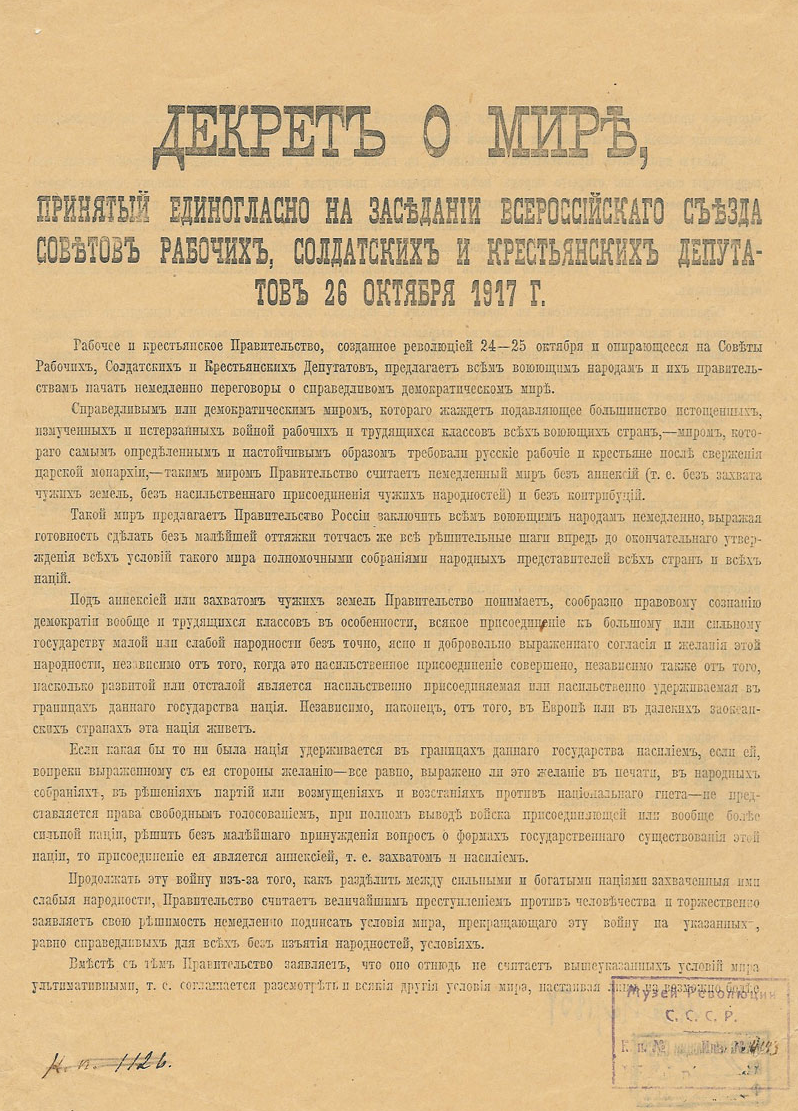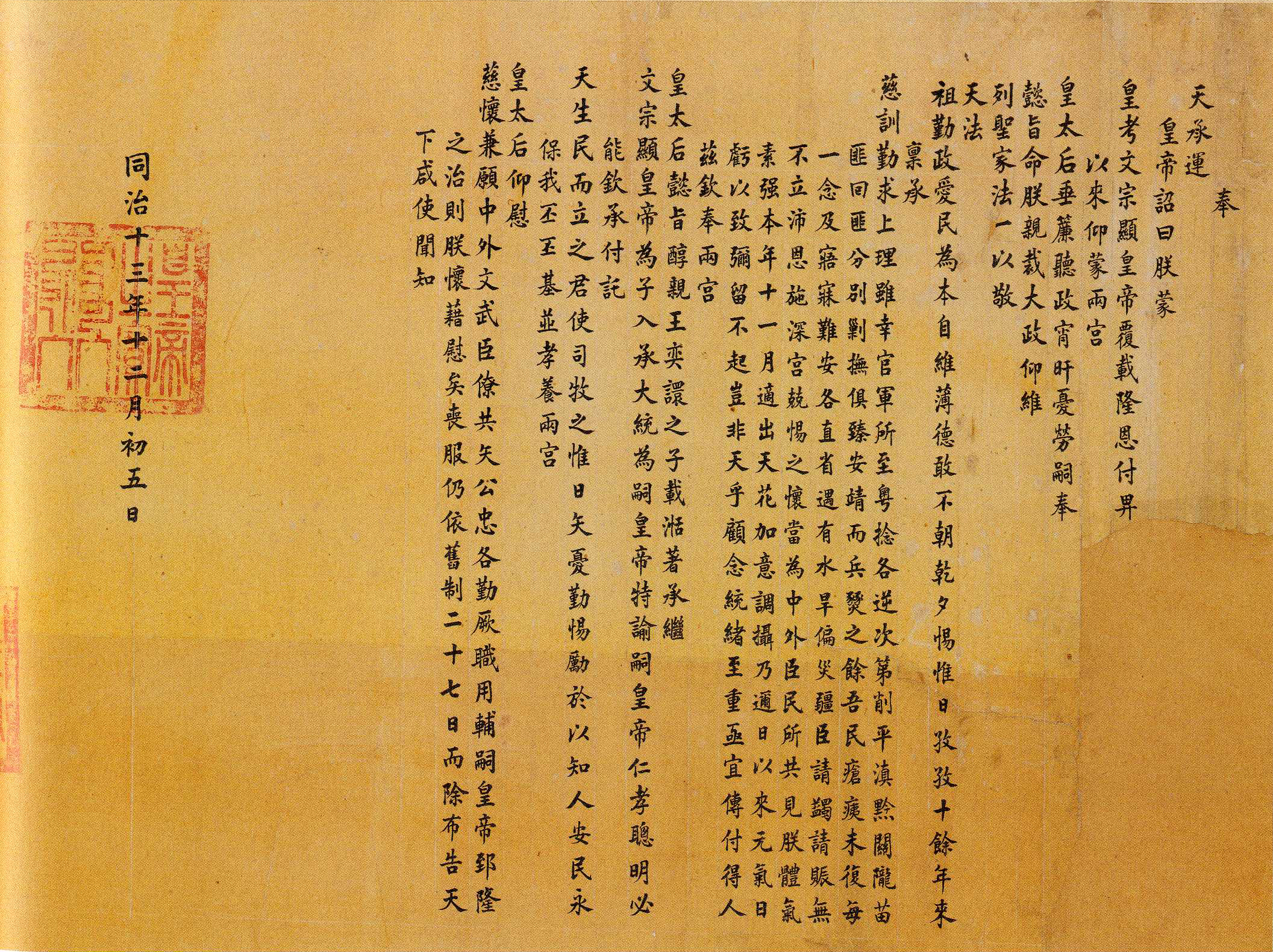|
Ukase
In Imperial Russia, a ukase () or ukaz ( ) was a proclamation of the tsar, government, or a religious leadership (e.g., Patriarch of Moscow and all Rus' or the Most Holy Synod) that had the force of law. " Edict" and " decree" are adequate translations using the terminology and concepts of Roman law. From the Russian term, the word ''ukase'' has entered the English language with the meaning of "any proclamation or decree; an order or regulation of a final or arbitrary nature". History Prior to the 1917 October Revolution The October Revolution, also known as the Great October Socialist Revolution (in Historiography in the Soviet Union, Soviet historiography), October coup, Bolshevik coup, or Bolshevik revolution, was the second of Russian Revolution, two r ..., the term applied in Russia to an edict or ordinance, legislative or administrative, having the force of law. A ukase proceeded either from the emperor or from the senate, which had the power of issuing such ordi ... [...More Info...] [...Related Items...] OR: [Wikipedia] [Google] [Baidu] |
Decree
A decree is a law, legal proclamation, usually issued by a head of state, judge, monarch, royal figure, or other relevant Authority, authorities, according to certain procedures. These procedures are usually defined by the constitution, Legislative Law, Legislative laws, or customary laws of a government. Belgium In Belgium, a decree is a law of a Communities, regions and language areas in Belgium, community or regional parliament, e.g. the Flemish Parliament. Catholic Church A decree (Ecclesiastical Latin, Latin: ''decretum'') in the usage of the canon law (Catholic Church), canon law of the Catholic Church has various meanings. Any papal bull, papal brief, brief, or motu proprio is a decree inasmuch as these documents are legislative acts of the pope. In this sense, the term is quite ancient. The Roman Congregations were formerly empowered to issue decrees in matters which come under their particular jurisdiction but were forbidden from continuing to do so under Pope Benedic ... [...More Info...] [...Related Items...] OR: [Wikipedia] [Google] [Baidu] |
Decree Of Presidium Of The Supreme Soviet Of The Soviet Union, 15
A decree is a legal proclamation, usually issued by a head of state, judge, royal figure, or other relevant authorities, according to certain procedures. These procedures are usually defined by the constitution, Legislative laws, or customary laws of a government. Belgium In Belgium, a decree is a law of a community or regional parliament, e.g. the Flemish Parliament. Catholic Church A decree (Latin: ''decretum'') in the usage of the canon law of the Catholic Church has various meanings. Any papal bull, brief, or motu proprio is a decree inasmuch as these documents are legislative acts of the pope. In this sense, the term is quite ancient. The Roman Congregations were formerly empowered to issue decrees in matters which come under their particular jurisdiction but were forbidden from continuing to do so under Pope Benedict XV in 1917. Each ecclesiastical province and also each diocese may issue decrees in their periodical synods within their sphere of authority. While in ... [...More Info...] [...Related Items...] OR: [Wikipedia] [Google] [Baidu] |
Soviet Decree
Decrees () were legislative acts of the highest Soviet institutions, primarily of the Council of People's Commissars (the highest executive body) and of VTsIK (the highest legislative body between sessions of the Congress of Soviets), issued between 1917 and 1924. Such acts issued after 1924 are referred to as Decisions () or s in Soviet sources. Bolshevik Initial Decrees [...More Info...] [...Related Items...] OR: [Wikipedia] [Google] [Baidu] |
Imperial Russia
Imperial is that which relates to an empire, emperor/empress, or imperialism. Imperial or The Imperial may also refer to: Places United States * Imperial, California * Imperial, Missouri * Imperial, Nebraska * Imperial, Pennsylvania * Imperial, Texas * Imperial, West Virginia * Imperial, Virginia * Imperial County, California * Imperial Valley, California * Imperial Beach, California Elsewhere * Imperial (Madrid), an administrative neighborhood in Spain * Imperial, Saskatchewan, a town in Canada Buildings * Imperial Apartments, a building in Brooklyn, New York * Imperial City, Huế, a palace in Huế, Vietnam * Imperial Palace (other) * Imperial Towers, a group of lighthouses on Lake Huron, Canada * The Imperial (Mumbai), a skyscraper apartment complex in India * Imperial War Museum, a British military museum and organisation based in London, UK * * Imperial War Museum Duxford, an aviation museum in Cambridgeshire, UK * * Imperial War Museum Nort ... [...More Info...] [...Related Items...] OR: [Wikipedia] [Google] [Baidu] |
Tsar
Tsar (; also spelled ''czar'', ''tzar'', or ''csar''; ; ; sr-Cyrl-Latn, цар, car) is a title historically used by Slavic monarchs. The term is derived from the Latin word '' caesar'', which was intended to mean ''emperor'' in the European medieval sense of the term—a ruler with the same rank as a Roman emperor, holding it by the approval of another emperor or a supreme ecclesiastical official—but was usually considered by Western Europeans to be equivalent to "king". Tsar and its variants were the official titles in the First Bulgarian Empire (681–1018), Second Bulgarian Empire (1185–1396), the Kingdom of Bulgaria (1908–1946), the Serbian Empire (1346–1371), and the Tsardom of Russia (1547–1721). The first ruler to adopt the title ''tsar'' was Simeon I of Bulgaria. Simeon II, the last tsar of Bulgaria, is the last person to have held this title. Meaning in Slavic languages The title tsar is derived from the Latin title for the Roman emperors, ''c ... [...More Info...] [...Related Items...] OR: [Wikipedia] [Google] [Baidu] |
Patriarch Of Moscow And All Rus'
The Patriarch of Moscow and all Rus (), also known as the Patriarch of Moscow and all Russia, is the title of the Primate (bishop), primate of the Russian Orthodox Church (ROC). It is often preceded by the honorific "His Holiness". As the Ordinary (church officer), ordinary of the diocese of Moscow, the office holder's direct canonical remit extends only to Moscow; however, as the patriarch, the office holder has a number of church-wide administrative powers as laid down by the charter of the ROC.Устав Русской Православной Церкви (принят на Ар� ... [...More Info...] [...Related Items...] OR: [Wikipedia] [Google] [Baidu] |
Most Holy Synod
The Most Holy Governing Synod (, pre-reform orthography: ) was the highest governing body of the Russian Orthodox Church between 1721 and 1917. It was abolished following the February Revolution of 1917 and replaced with a restored patriarchate under Tikhon of Moscow. The jurisdiction of the Most Holy Synod extended over every kind of ecclesiastical question and over some partly secular matters. Peter I of Russia established the Synod on January 25, 1721 in the course of his church reform. Its establishment was followed by the abolition of the Patriarchate. The synod was composed partly of ecclesiastical persons, partly of laymen appointed by the Tsar. Members included the Metropolitans of Saint Petersburg, Moscow and Kiev, and the Exarch of Georgia. Originally, the Synod had ten ecclesiastical members, but the number later changed to twelve. Background A series of reforms by Peter the Great inspired the creation of the Most Holy Synod. The new Imperial Age saw radi ... [...More Info...] [...Related Items...] OR: [Wikipedia] [Google] [Baidu] |
Edict
An edict is a decree or announcement of a law, often associated with monarchies, but it can be under any official authority. Synonyms include "dictum" and "pronouncement". ''Edict'' derives from the Latin edictum. Notable edicts * Telepinu Proclamation, by Telipinu, king of the Hittites. Written c. 1550 BC, it helped archeologists to construct a succession of Hittite Kings. It also recounts Mursili I's conquest of Babylon. * Edicts of Ashoka, by the Mauryan emperor, Ashoka, during his reign from 272 BC to 231 BC. * Reform of Roman Calendar, Julian Calendar, took effect on 1 January AUC 709 (45 BC). * Edictum perpetuum (129), an Imperial revision of the long-standing Praetor's Edict, a periodic document which first began under the late Roman Republic (c. 509–44 BC). * Edict on Maximum Prices (301), by Roman Emperor Diocletian. It attempted to reform the Roman system of taxation and to stabilize the coinage. * Edict of Toleration (311), by Galerius before hi ... [...More Info...] [...Related Items...] OR: [Wikipedia] [Google] [Baidu] |
Roman Law
Roman law is the law, legal system of ancient Rome, including the legal developments spanning over a thousand years of jurisprudence, from the Twelve Tables (), to the (AD 529) ordered by Eastern Roman emperor Justinian I. Roman law also denoted the legal system applied in most of Western Europe until the end of the 18th century. In Germany, Roman law practice remained in place longer under the Holy Roman Empire (963–1806). Roman law thus served as a basis for Civil law (legal system), legal practice throughout Western continental Europe, as well as in most former colonies of these European nations, including Latin America, and also in Ethiopia. English and Anglo-American common law were influenced also by Roman law, notably in their Latinate legal glossary. Eastern Europe was also influenced by the jurisprudence of the , especially in countries such as medieval Romania, which created a new legal system comprising a mixture of Roman and local law. After the dissolution of ... [...More Info...] [...Related Items...] OR: [Wikipedia] [Google] [Baidu] |
Russian Revolution Of 1917
The Russian Revolution was a period of Political revolution (Trotskyism), political and social revolution, social change in Russian Empire, Russia, starting in 1917. This period saw Russia Dissolution of the Russian Empire, abolish its monarchy and adopt a socialist form of government following two successive revolutions and Russian Civil War, a civil war. It can be seen as the precursor for Revolutions of 1917–1923, other revolutions that occurred in the aftermath of World War I, such as the German Revolution of 1918–1919. The Russian Revolution was a key events of the 20th century, key event of the 20th century. The Russian Revolution was inaugurated with the February Revolution in 1917, in the midst of World War I. With the German Empire inflicting defeats on the front, and increasing logistical problems causing shortages of bread and grain, the Russian Army was losing morale, with large scale mutiny looming. Officials were convinced that if Tsar Nicholas II abdicated ... [...More Info...] [...Related Items...] OR: [Wikipedia] [Google] [Baidu] |
Constitution Of Russia
The Constitution of the Russian Federation () was adopted by national referendum on 12 December 1993 and enacted on 25 December 1993. The latest significant reform occurred in 2020, marked by extensive amendments that altered various sections, including presidential terms, social policies, and the role of Russian law over international ones. (See 2020 amendments to the Constitution of Russia). Russia's constitution came into force on 25 December 1993, at the moment of its official publication, and abolished the Soviet system of government. The 1993 Constitution is one of the longest-standing constitutions in Russian history, second only to the Soviet Union’s 1936 Constitution, which was in effect until 1977. The text was drafted by the 1993 Constitutional Conference, which was attended by over 800 participants. Sergei Alexeyev, Sergey Shakhray, and sometimes Anatoly Sobchak are considered as the primary co-authors of the constitution. The text was inspired by Mikhail ... [...More Info...] [...Related Items...] OR: [Wikipedia] [Google] [Baidu] |





